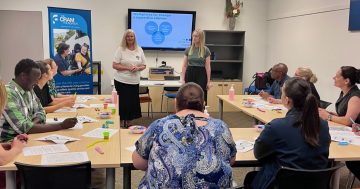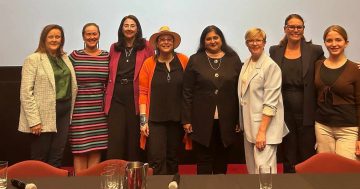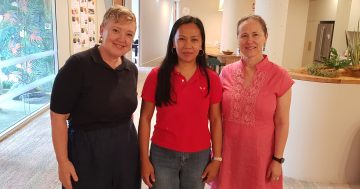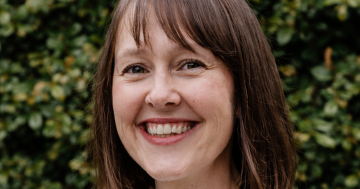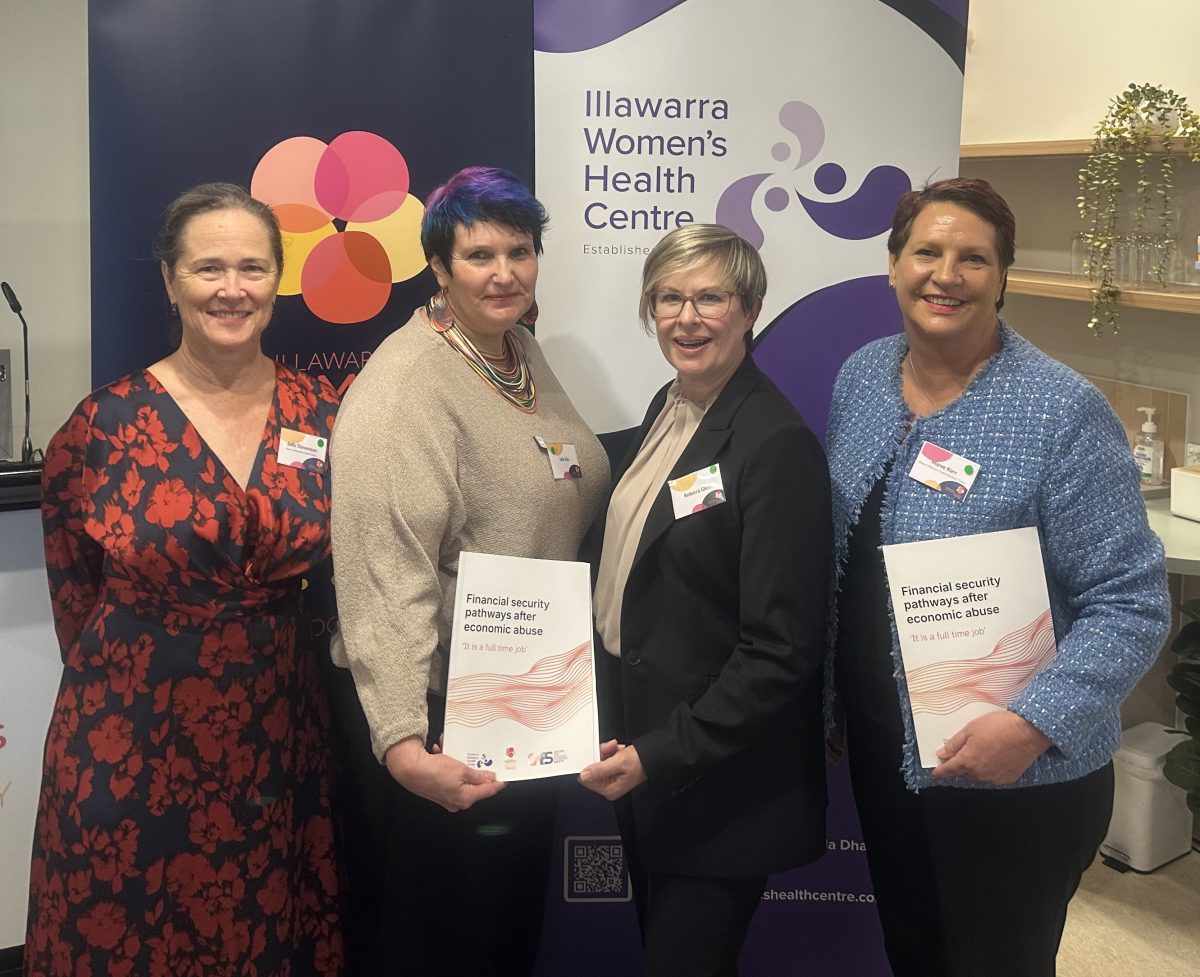
Sally Stevenson, Julie Kun, Rebecca Glenn and Maree Kerr at the Women’s Health Centre’s launch of its report. Photo: Supplied.
Escaping abuse is a full-time job for survivors, and Illawarra advocates are calling for them to be compensated.
A report delivered by the Illawarra Women’s Health Centre highlights the financial obstacles victim-survivors of domestic abuse face and how they can be better supported.
Authored by Julie Kin in partnership with the Illawarra Women’s Trauma Recovery Centre and the Centre for Women’s Economic Safety (CWES), the Financial Security Pathways after Economic Abuse report shows the effects of economic abuse can last a lifetime.
Prolonged poverty, poor mental health, housing insecurity and homelessness continue long after the abusive relationship has ended.
Illawarra Women’s Trauma Recovery Centre CEO Maree Kerr said victim-survivors described a complex web of overlapping systems when they tried to secure their long-term financial security.
“Those most in need report there is no clear pathway to financial security post-separation even though financial security is closely tied to their sense of safety,” she said.
“They struggled with separate yet overlapping service delivery systems, interrelated and sometimes conflicting policies, along with sexism, ageism and racism.
“It is time to dismantle the obstacles to financial support and implement evidence-based changes to create viable, streamlined pathways to financial security.”
CWES founder and CEO Rebecca Glenn said the report drew on the experience and expertise of victim-survivors, academics and service providers within the Illawarra.
She said it found economic insecurity seeped into every aspect of life, from financial and essential services to employment, social security, child support, family court, health care, NDIS, domestic and family violence services.
“Women need clarity and flexibility when it comes to pursuing financial security after economic abuse but are finding there is no easy way forward,” she said.
“Legal proceedings, financial entanglement, post-separation abuse, non-payment of child support, inadequate social security income and challenges in gaining decent employment are just some of the obstacles.
“This report offers evidence-based recommendations that target multiple areas including government, community, financial, health, aged, and disability services and policy.
“Some recommendations are quick fixes while others are long-term strategies but all have the ability to positively impact financial security after economic abuse.”
Priority recommendations from the report included raising social security benefits above the poverty line and guaranteeing child support payments.
The authors suggest treating non-payment of child support like any other debt when assessing credit checks would be one way to ensure that guarantee.
They also recommended establishing multidisciplinary service hubs for domestic violence and financial recovery, ensuring NDIS recipients didn’t lose NDIS funding when leaving abusive relationships and guaranteeing aged care support for older victim-survivors.










